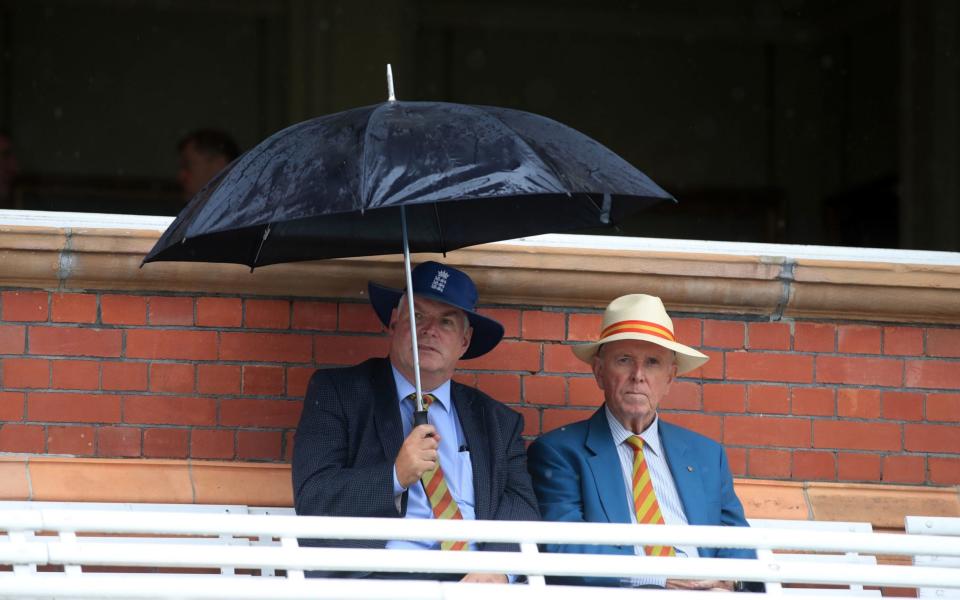English cricket must not rely on TV money, says Colin Graves

Colin Graves, the former chairman of the ECB, has warned that English cricket has to stop relying on broadcast money to survive.
Graves has recently joined the board of Oakwell Sports Advisory, a consultancy group that specialises in sports finance. His new role comes as private investors are eyeing opportunities in English cricket, which is recovering from the financial battering of the pandemic.
Andrew Umbers, the Oakwell chairman, met with the ECB last year after his company produced a report urging the governing body to sell private equity in Hundred franchises.
Now Graves has joined the company five months after stepping down as ECB chairman and the board are expected to discuss Oakwell’s proposals at its next meeting on Jan 19.
“The Hundred springs to mind because it is a new tournament,” said Graves. “It offers new opportunities so I think that will be put on the table. It will attract a lot of people to support it and finance it. But the big thing from my perspective is let’s get a blank sheet of paper, put everything on the table and look at how things can be done differently.
"We are living in a changing world and ECB can’t just sit there and say we have got a broadcasting deal for the next four years because we all know the world will change. Let’s prepare for it, let's work with everybody and get governing bodies in the right place.
“When this broadcasting deal finishes it will be a different ball game. ECB needs to look at what life will look like in 2024 and get ready for how they can maximise it.”
Umbers says revenue in cricket globally has taken a £400m hit with the ECB losing about £100m but says investors, particularly in India, still see English cricket as an attractive product with large grounds, a good broadcast market and Asian diaspora.
Selling equity in Hundred franchises is one way to raise capital, another would be for the large Test match counties to also look into external investment, although as member clubs many would have to change their constitution, and the unbundling of media rights.
“Absolutely yes,” said Umbers when asked if investors are ready to back English cricket. “India is the fulcrum of growth within cricket. India accounts for 55 per cent of global cricket revenue. I think it is ironic we [English cricket] don't have any relationship at the corporate level with the BCCI or IPL franchises. It would make economic sense for that to happen.
“We have had owners of IPL clubs for a long time and they have been talking to Oakwell for the last year about cricket and we have provided a lot of research about our own domestic cricket and what its strengths and opportunities are. It is a very positive message. There is an abundant amount of capital that finds English cricket very attractive.”
Many of the major Test grounds are saddled with debt and only MCC are able to raise capital quickly (they made £30m from selling life memberships last year) so investors see rich pickings. English cricket has shied away from third-party ownership and when it set up the Hundred, the ECB decided to retain control. But the pandemic has changed everything.
“When I was chairman of ECB I said the debt in the game, which stood at £165m, was unsustainable then. That debt now is approaching nearly £200m with a broadcasting revenue of £220m per year,” says Graves. “I was not able to do it but the debt in the game needs to be restructured and come down from a county perspective, especially the big grounds because they are carrying the can.
“We are here to work with the governing body. We are not trying to push them in one direction or dictate and disrupt what they have got. We want to help them get in the right position going forward.”

 Yahoo Sport
Yahoo Sport 





































